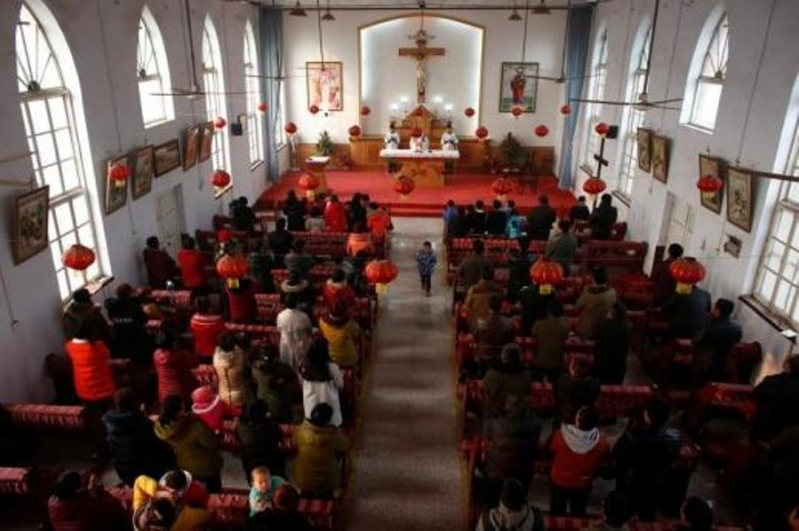
While Pope Francis tries to heal a decades-old religious rift with China within which Chinese Catholics are divided between loyalty to him and those who are members of a government-controlled official church, China's head of religious affairs on Tuesday said Beijing is willing to have constructive dialogue with the Vatican but stressed Catholics should "hold up high the flag of patriotism" and adapt Catholicism to Chinese society.
Wang Zuo'an, head of the State Administration for Religious Affairs in China, was quoted by state news agency Xinhua on Tuesday as stating China "hopes the Vatican takes an even more flexible and pragmatic attitude, and takes actual steps to create beneficial conditions for improving relations."
China severed relations with the Holy See in 1951 after Communists took over, and the officially atheistic government closed churches and imprisoned priests, some for decades, reports AP. Worship is officially allowed only in state-authorized churches outside the pope's authority, although many of China's estimated 12 million Catholics are thought to attend underground churches.
China wants constructive talks to narrow differences, increase consensus and promote improved relations, Wang told a meeting of Chinese Catholics, reports RNS.
"The Chinese government's position on improving Sino-Vatican ties has always been clear and consistent," Wang said.
A week ago, Roman Catholic Church representatives said they were hoping for "positive signals" from Beijing.
Wang agrees the Vatican should take steps to improve relations with China, but one obstacle to future cohesion is the question of who should be able to appoint senior clergy. China officials state bishops must be named by the local Chinese Catholic community and refuse to accept the authority of the pope, who they see as the head of a foreign state that has no right to meddle in Beijing's affairs.
Beijing officials insist the party-controlled Chinese Catholic Patriotic Association has the authority to appoint Chinese bishops, a decision the Holy See says belongs to the pope alone. This dispute over bishop nominations is the largest stumbling block to re-establishing diplomatic relations.
A Vatican spokesperson last week said they were "certain that all Catholics in China are waiting with trepidation for positive signals that would help them have trust in dialogue between civil authorities and the Holy See and hope for a future of unity and harmony."
Foreign missionaries were expelled from China after the Communists took power in 1949. The Vatican also continued official ties with self-ruled Taiwan, which Beijing claimed as its own.
When Lei Shiyin, a government-backed bishop excommunicated by the Vatican, this month participated in the ordination of new bishops, tension between the two Catholic bodies again rose.
Ruling Communist Party officials have long feared that opposition to its rule could be spread by religious and other civic groups outside its control. In May last year, President Xi Jinping called for religions to adapt to Chinese society, which he termed the "sinicization of religion."







